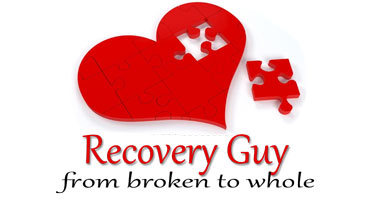Once we have addressed and overcome the depression we should continue to use the tools that got us to our new healthy position. We should safeguard ourselves from returning to that negative mindset by self-monitoring.
The Recovery Guy Blog
Gratitude
We must learn to become grateful or our chance of true long-lasting sobriety will likely not come to us. We need simply to learn to be grateful for the little things and move toward more significant things. As we grow in our recovery then we can begin to appreciate the bigger things as they come to us.
Mechanisms of Change
It is often not known if using brought about the cognitive condition or if it was a result of the drinking/using. One thing is for sure – if a person is to experience life-long recovery and increasing wellness they must introduce mechanisms that will promote change.
Mastering the Law of Attraction
The 3 things we all must do are Ask, Believe and Receive. We may want to do more as we find a greater path, but these 3 things are foundational to the Law of Attraction.
10 Steps of Setting Boundaries Part2
Setting boundaries takes courage, practice, and support. And remember that it’s a skill you can master.
10 Steps of Setting Boundaries Part 1
We must have (boundries) to keep from negative people, places and things as well. Setting boundaries is only the beginning. Once we have them set we know must guard them.
The Disease of Denial
Denial is a characteristic distortion in thinking experienced by people with alcoholism. For decades, people who treat alcoholics, and recovering alcoholics themselves, have puzzled over why alcoholics continue to drink when the link between alcohol and the losses they suffer is so clear. Denial is an integral part of the disease of alcoholism and a major obstacle to recovery.
Meditation Is Like Breathing
As vital as meditation is, it is not, unfortunately, involutary. There is no involutary characterist to it. There is no fire alarm – spiritaul or otherwise – that automatically kicks in when we need it. Meditation only occurs when I decide to meditate. In a way, I wish I was forced to meditate. If I were then I could have averted countless bad decisions and many negative outcomes.
Aligned for the Ride
When I consider personal alignment, I must consider the four dimensions of my life. As a person, I am made up of physical, emotional, mental and the spiritual. As I have four tires on my vehicle I have four areas of life that need attention. Not having all four tires aligned simultaneously causes uneven wear are on the other tires.
What’s Trust Got to Do with It
Trust is a foundational requirement for every healthy relationship. Without trust, there is no basis for caring. It is near impossible to have reciprocal care for a person where trust isn’t an essential part of the relationship. The quote “This above all: to thine own self be true, and it must follow, as the night the day, Thou canst not then be false to any man” is a line from Hamlet by William Shakespeare and it connects self-truth as a necessary component of being truthful to others.
Understanding, Identifying and Avoiding Triggers
Quite simply, a trigger is a person, place, thought or event that can set into motion a response. You have heard the tried and true phrase “if it were easy everyone would be doing it.” The same thing is true when applied to today’s blog.
Finding What Works
There are so many factors… Not only are the variables different with an addiction or negative behavior, but is also associated with what triggers it. We must learn a positive response that we would want to apply that recovery solution to need to recover.












